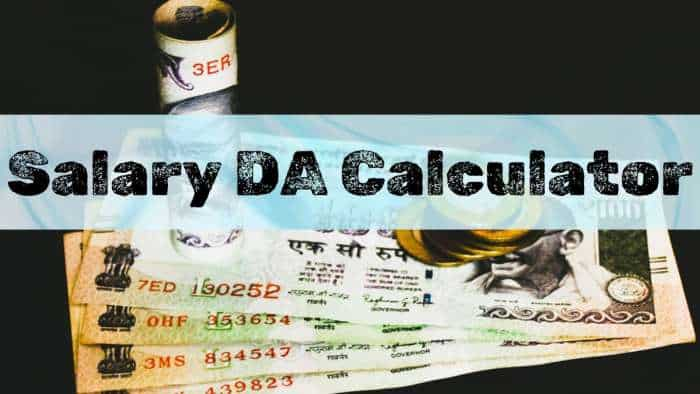NPS vs mutual fund SIP: Which is a better investment plan for retirement? | Explained
NPS vs mutual fund SIP: Investment is important to achieve financial goals at every stage of your life. When you are young, you create wealth to complete your short-term goals. For investors seeking to achieve short-term goals and live a happy post retirement life, two popular options are- National Pension Scheme (NPS), and systematic investment plan (SIP) investments in mutual funds. The careful selection of either or both options can be helpful in creating wealth and achieving your financial goals.
)
NPS vs mutual fund SIP: Investment is important to achieve financial goals at every stage of your life. When you are young, you create wealth to complete your short-term goals. At the same time, you invest for your old age to live a happy and financially secure life. But when you are financially planning for either stage of your life, it is important to choose the right investment options. The right choices will help you attain financial freedom soon. For investors seeking to achieve short-term goals and live a happy post retirement life, two popular options are- National Pension Scheme (NPS), and systematic investment plan (SIP) investments in mutual funds. The careful selection of either or both options can be helpful in creating wealth and achieving your financial goals. Here's your guide for the same-
NPS Vs Mutual Fund SIPs
National Pension System (NPS)
1. Retirement-focused: NPS is designed primarily for retirement planning. NPS provides a more structured way to accumulate a retirement corpus by investing in equity, corporate bonds, and government securities.
2. Tax Benefits: Contributions towards NPS are eligible for tax benefits. NPS offers tax benefits under Section 80CCD(1B) for an additional deduction of up to ₹50,000 over and above the limit of Rs 1.5 lakh under Section 80C.
3. Regulated by PFRDA: NPS is regulated by the Pension Fund Regulatory and Development Authority (PFRDA), and provides flexibility in choosing fund managers and investment options.
4. Lock-in and Withdrawals: NPS has withdrawal limitations. The NPS lock-in period is till the investor turns 60. However, premature withdrawal is also possible, but with certain restrictions for specific purposes like child education, buying a house, etc.
Mutual Fund SIPs:
1. Diverse Investment Choices: Mutual Fund SIPs offer a wide range of investment choices across numerous asset classes such as equity, debt, hybrid, and others, catering to various financial goals beyond just retirement.
2. Lock-In Period & Withdrawals: Mutual Fund SIPs offer various lock-in-periods, allowing investors to redeem their investments whenever needed.
3. Taxation: Taxation on mutual funds varies depending on the type of fund and the holding period. Equity-oriented funds have different tax implications compared to debt-oriented funds.
4. Professional Fund Management: Mutual funds are managed by professional fund managers who make investment decisions based on market conditions and fund objectives and are regulated by the market regulator, Securities and Exchange Board of India (SEBI).
NPS vs Mutual Fund SIP: The choice between both, which is better?
Mayukh Datta, CBO at ITI Mutual Fund, said, “A balanced approach that could involve a combination of both NPS and Mutual Fund SIPs to meet various financial objectives is ideal."
NPS vs Mutual Fund SIP: Which factors should one consider while making the choice?
Nitin Shahi, Executive Director at Findoc Group, said, "The choice between NPS and mutual fund SIPs ultimately depends on individual financial objectives, risk tolerance, and investment horizon. For investors prioritising retirement planning with tax benefits, NPS serves as an efficient tool. Conversely, mutual fund SIPs offer flexibility, diversification, and the potential for higher returns over the long term, making them suitable for wealth creation and financial goals beyond retirement."
Notably, it is advisable to consider consulting a financial advisor who can assess your circumstances and help you make an informed decision based on your financial goals and risk tolerance.
Catch the latest stock market updates here. For all other news related to business, politics, tech, sports and auto, visit Zeebiz.com.
Get Latest Business News, Stock Market Updates and Videos; Check your tax outgo through Income Tax Calculator and save money through our Personal Finance coverage. Check Business Breaking News Live on Zee Business Twitter and Facebook. Subscribe on YouTube.
RECOMMENDED STORIES

New Tax Regime Slabs: Is your annual salary Rs 12,87,500? Do you need to pay tax on Rs 12,500 or Rs 12,87,500? See calculations to know

SIP, One-time Investments for Retirement Planning: Want to get Rs 60,000 monthly income at 60? Know how much you need to invest if you are 25, 30, 35, or 40 years old?

Top 7 SBI Mutual Fund MFs by One-time Investment Return: Rs 1 lakh has grown to Rs 2.85 lakh-3.48 lakh in 5 years; see list, compare SIP returns

SBI Senior Citizen FD Rates: Know what PSU bank is giving on Rs 1,50,000, Rs 2,50,000, and Rs 3,50,000 investments in fixed deposits

SBI 444-day FD vs SBI 400-day FD: Which can give you higher maturities on Rs 2 lakh, 4 lakh, and 6 lakh investments?

Income Tax Calculations: What will be your tax liability if your salary is Rs 8 lakh, Rs 14 lakh, Rs 20 lakh, and Rs 26 lakh?

Dearness Allowance (DA) Calculations: Is your basic monthly salary Rs 25,500, Rs 35,400, or Rs 53,100? Know how much DA will you get at different rates
07:38 AM IST










 NPS Vatsalya: How can you generate Rs 100 crore retirement corpus for your child at 60 years of age?
NPS Vatsalya: How can you generate Rs 100 crore retirement corpus for your child at 60 years of age? Chitra Jayasimha appointed Chairperson of National Pension System Trust
Chitra Jayasimha appointed Chairperson of National Pension System Trust  How to open NPS Vatsalya account: 10 details you need to fill out to register your child now
How to open NPS Vatsalya account: 10 details you need to fill out to register your child now ICICI Bank launches NPS Vatsalya pension account for minors; key features, other details to kow
ICICI Bank launches NPS Vatsalya pension account for minors; key features, other details to kow Axis Bank joins hands with PFRDA to launch NPS Vatsalya scheme
Axis Bank joins hands with PFRDA to launch NPS Vatsalya scheme